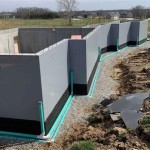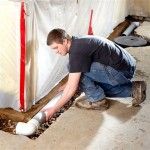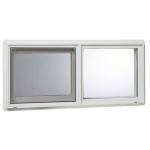Correct Humidity Level For Basement
The ideal humidity level for a basement is between 30% and 50%. This range helps prevent moisture problems, such as mold and mildew, and can also help improve the air quality in your home. If the humidity level in your basement is too high, you may notice condensation on the walls or windows, or you may even see mold or mildew growing. If the humidity level is too low, the air in your basement can become dry and uncomfortable, and you may experience static electricity.
There are a few things you can do to control the humidity level in your basement. One is to use a dehumidifier. A dehumidifier will remove moisture from the air and help to keep the humidity level in your basement at a comfortable level. Another way to control the humidity level in your basement is to improve the ventilation. This can be done by opening windows or doors, or by installing a ventilation fan.
If you are having trouble controlling the humidity level in your basement, you may want to consider contacting a professional. A professional can help you determine the cause of the high humidity level and recommend the best solution for your home.
Causes of High Humidity in Basements
There are a few things that can cause high humidity in basements, including:
- Water leaks: Water leaks can be a major source of moisture in basements. If you have a water leak, it is important to fix it as soon as possible to prevent further damage.
- Poor ventilation: Poor ventilation can also lead to high humidity in basements. If your basement does not have adequate ventilation, it can trap moisture and cause the humidity level to rise.
- Condensation: Condensation can also occur in basements, especially during the summer months. Condensation occurs when warm, moist air comes into contact with a cold surface, such as a basement wall. When this happens, the moisture in the air condenses and forms water droplets.
Effects of High Humidity in Basements
High humidity in basements can have a number of negative effects, including:
- Mold and mildew growth: Mold and mildew thrive in humid environments. If the humidity level in your basement is too high, you may notice mold or mildew growing on the walls, floors, or ceilings.
- Musty odor: High humidity can also cause a musty odor in your basement. This odor is caused by the growth of mold and mildew.
- Damage to belongings: High humidity can also damage your belongings. Moisture can cause wood to rot, metal to rust, and paper to become moldy.
- Health problems: High humidity can also lead to health problems, such as allergies and asthma.
How to Control Humidity in Basements
There are a few things you can do to control the humidity level in your basement, including:
- Use a dehumidifier: A dehumidifier is a device that removes moisture from the air. Dehumidifiers are available in a variety of sizes and capacities, so you can choose one that is right for your basement.
- Improve ventilation: Improving the ventilation in your basement can help to reduce the humidity level. You can do this by opening windows or doors, or by installing a ventilation fan.
- Fix water leaks: If you have a water leak in your basement, it is important to fix it as soon as possible. Water leaks can be a major source of moisture in basements.
- Use a vapor barrier: A vapor barrier is a material that prevents moisture from entering a space. Vapor barriers can be installed on the walls and floors of your basement to help reduce the humidity level.

How To Achieve An Ideal Basement Humidity Of 30 50

How To Achieve An Ideal Basement Humidity Of 30 50

How To Achieve An Ideal Basement Humidity Of 30 50

A Guide To Controlling Nc Home Humidity Newcomb And Company

How To Lower Your Basement S Humidity Level

What Is The Ideal Basement Humidity Level Epp Foundation Repair

Relative Humidity Chart For Ideal In The House

What Should Humidity Be In A Crawl Space Nia

5 Effective Tips To Reduce Humidity In Your Basement News And Events For Thrasher Foundation Repair

What Is The Ideal Crawl Space Humidity Level
See Also








